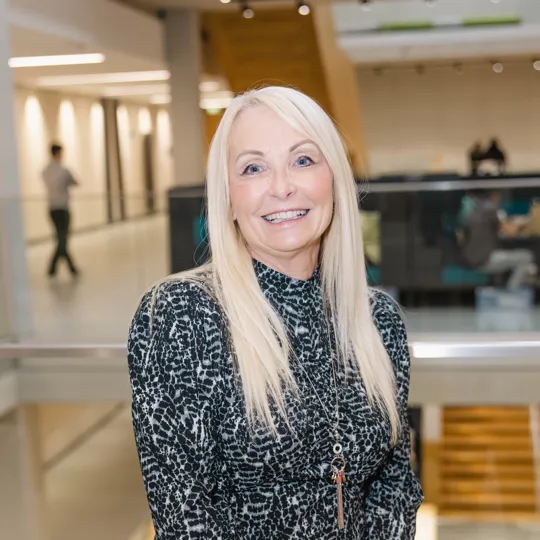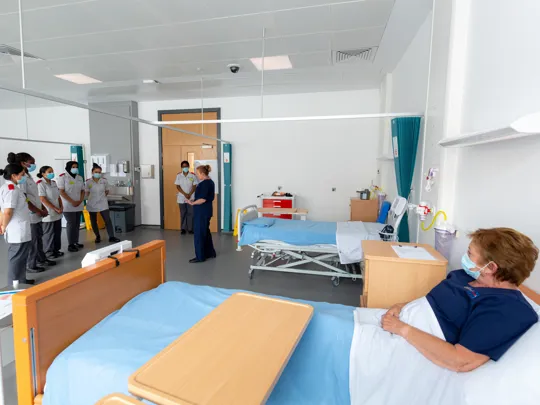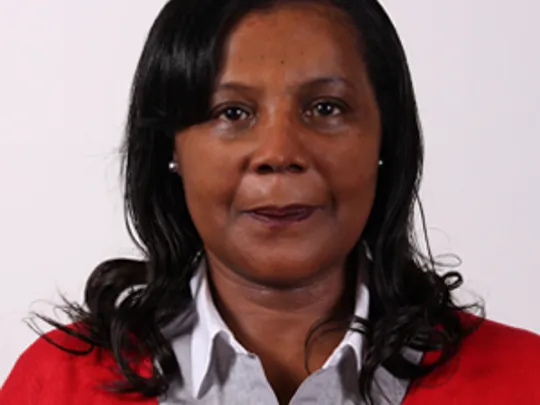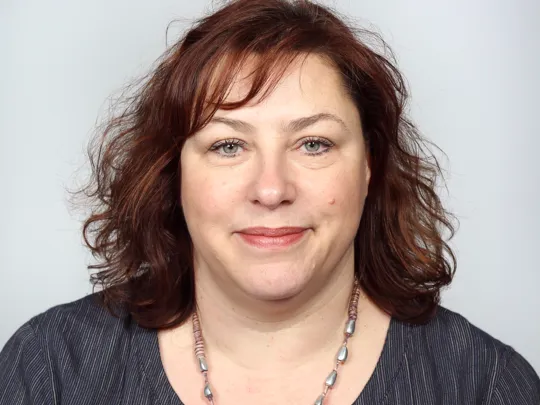of graduate employers say relevant experience is essential to getting a job with them
Why choose this college course?
- PRACTICAL APPLICATION – Take on projects and assignments based on realistic workplace situations and activities, supported by our superb simulation facilities
- WORK PLACEMENT – Give your CV a huge boost and experience the industry first-hand on work placements, with opportunities from care homes or hospitals to schools and more
- PROGRESSION – There is a clear progression route to the Level 3 Health and Social Care course, employment or an apprenticeship
Our facilities
Our purpose-built health and social care simulation facilities at University College Birmingham provide our students with a dedicated teaching room, but also the practical experience required for when they engage in their real working environment placements.
Course breakdown
Topics you will study:
Seven mandatory units:
Unit 1: Human Lifespan Development – this unit explores human growth and development across life stages, as well as the factors that affect human growth and development, and how they are interrelated.
Unit 2: Health and Social Care Values – this unit explores the care values that underpin current practice in health and social care and investigates ways of empowering individuals who use health and social care services.
Unit 3: Effective Communication in Health and Social Care – this unit provides the learner with the chance to investigate different forms of communication and barriers to communication in health and social care, as well as the opportunity to develop their communication skills in health and social care-related contexts.
Unit 9: Healthy Living – this unit develops learners’ understanding of the healthy lifestyle choices individuals can make.
Unit 7: Equality and Diversity in Health and Social Care – this unit looks at the importance of non-discriminatory practice in health and social care and how health and social care practices can promote equality and diversity.
Unit 8: Individual Rights in Health and Social Care – this unit explores the rights of individuals using health and social care services, and examines the responsibilities of employers and employees in upholding service users’ rights in health and social care.
Unit 15: Carrying out a Research Project in Health and Social Care – this synoptic unit requires learners to bring together the knowledge, skills and understanding they have gained from other units of study and explore a health and social care-related project topic of interest to them. Learners will then plan, carry out and reflect on their project, using and developing key skills that are valued by employers and support progression to Level 3 qualifications.
You will also study four optional units, and these will reflect current trends in the health and social care sector.
Please note: Units/topics of study are subject to change
You will also have an individual study programme to help you build the skills and experience you need to progress onto higher education or gain employment.
Entry requirements
Our health and social care lecturers are looking for students who are enthusiastic and passionate about health and social care together with a keen determination to succeed in the sector, so please contact Admissions if you do not have the specific requirements outlined below.
If you are unsure if your qualification is equivalent or if you wish to check if you meet the entry requirements for this course, please call 0121 214 2919, email feadmissions@ucb.ac.uk or use our live chat.
Academic requirements
- 4 GCSEs at Grade 3 (grade C) or above, including English (Language or Literature) and maths.
English and maths
If you do not have a grade 4/C or above in English and maths and you are under 19, you will be required to study these subjects alongside your vocational subject. After enrolment you will complete an assessment with our teaching team so we can ensure you receive appropriate English and maths support.
Applicants over 19 are not required to complete maths and English.
Supporting documents required
- School applicants will be required to provide a good school report, which must include attendance. This will be assessed in conjunction with your qualifications and application during the confirmation of your place at University College Birmingham.
- If you are a school leaver (over 19), you will be required to provide a reference from a previous education provider or employer in support of your application.
Disclosure and Barring Service (DBS)
This course requires a Disclosure and Barring Service (DBS) check. Information about the DBS check and how to apply for it will be sent to you by our placement team after enrolment. University College Birmingham will coordinate and fund the completion of the DBS check.
Key information
Teaching and assessment
There are two externally assessed units, which are Unit 1: Human Lifespan Development and Unit 9: Healthy Living. All other units are internally assessed using a range of assessment methods.
Our teaching and assessment is underpinned by our Teaching, Learning and Assessment Strategy 2021-2024.
Uniform and kit costs
This course requires a uniform and kit costing approximately £30, depending on the items you purchase. (Prices are subject to change each year – exact costs and information on how to order required items will be provided to you prior to enrolment.)
Work placements
Work placements offer a wealth of benefits alongside your studies, helping you put your learning into practice, develop your skills and understanding of the workplace, boost your CV for your chosen career or enhance your UCAS application for higher education. Our Hired team can help find the ideal placement for you.
Students on our Health and Social Care college course will need to spend time on placement in an appropriate setting, with opportunities available in residential homes, day-care centres, special schools, community centres, early years settings or youth centres.
Work alongside experts in your sector
A snapshot of some of the employers we have worked with:
- Barchester Healthcare Edgbaston Beaumont Care Home
- Age UK Birmingham
- Anchor Homes
- Cerebral Palsy Midlands
- Sandwell & West Birmingham Hospitals NHS Trust

If your ultimate goal is to have a rewarding career in the health and social care sector and progress onto further training and qualifications, then the Level 2 First Extended Certificate in Health and Social Care is the perfect place to start your journey.
This course is designed to give you a broad understanding of the theoretical knowledge and practical skills you will require to work in the health and social care sector. More than this, you will also expand your knowledge in areas such as the principles of effective communication, and equality and diversity in the health and social care sector.
You will develop essential knowledge and skills via a combination of practical work-based learning and will gain a deeper understanding of the principles and theory that surrounds the health and social care sector via academic study.
Career opportunities
The example roles and salaries below are intended as a guide only.
Healthcare assistant
Average Salary: £17,500
Care worker
Average Salary: £18,750
Social work assistant
Average Salary: £18,750
Residential support worker
Average Salary: £22,000
Senior care worker
Average Salary: £18,750
Care home advocate
Average Salary: £24,000
Aspiring to a higher level career? Complete this course and you could progress onto our Level 3 Health and Social Care course, then have the choice to stay on with us to complete a Health and Social Care, Adult Nursing, Mental Health Nursing or Physiotherapy BSC (Hons) degree programme.

Aleena's Story
One of our own graduates, Aleena has worked everywhere from a pupil referral unit to a secondary school helping students avoid a life of crime - before returning to us to become a lecturer.
Meet your tutors







